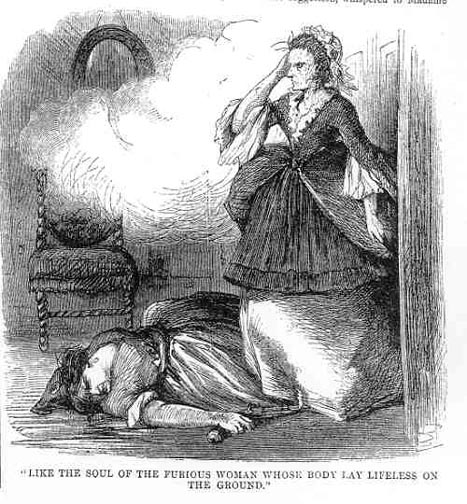"Like the soul of the furious woman whose body lay lifeless on the ground"
8.8 cm high by 8.7 cm wide (3 ½ inches square)
John McLenan
Dickens's A Tale of Two Cities, Book III, Chapter XIV, "The Knitting Done."
The twenty-ninth installment of the novel appeared in Harper's Weekly (26 November 1859): 765; it had originally appeared in the UK on Saturday, 19 November in All the Year Round
See the T. B. Peterson volume, facing p. 207.
